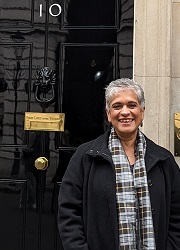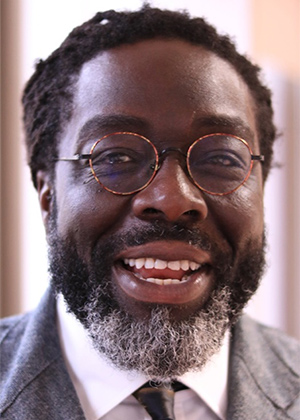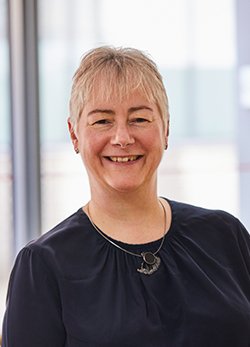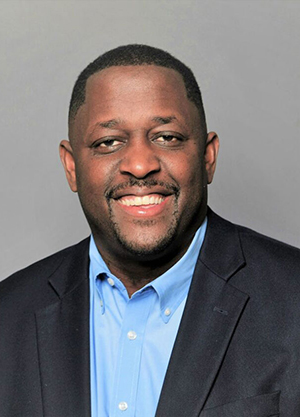
College ‘legend’ Sir Denis Pereira Gray talks to GP Frontline about his long career in general practice – and why he’s convinced that continuity of care is vital to the survival of the profession.
If anyone knows the value of continuity in caring for your patients, it’s Sir Denis Pereira Gray. Amidst a distinguished career that has included being Chair and President of the RCGP, he worked in the same practice in Exeter for 38 years looking after many generations in the same family.
Indeed, it was the very same practice first established by his grandfather, a Portuguese immigrant, who became known locally as the poor man’s doctor. The reforms put in place by Prime Minister David Lloyd George in the early 20th Century to help lower paid workers access a doctor sent a surge of patients his way.

The surgery continued in the family tradition with his father who ran the St Leonard’s Practice single-handedly until he was in his 60s. Sir Denis did his medical degree at Cambridge and St Bart’s in London and later established the first postgraduate university department of general practice in Europe at the University of Exeter.
St Leonard’s evolved with the times and is now a large multi-partner practice based in modern purpose-built premises. It also houses a unique dedicated research centre set up by Sir Denis and his colleague Professor Phil Evans but it retains the values of the early days, not least in terms of GPs having personal lists, he explains.
“I never met my grandfather. I was born just when he was dying but I learned a huge amount from my father who was a very experienced and very caring GP and he gave me a lot of values and he gave me a lot of skills,” he says.
Sir Denis, who was the second RCGP President to be knighted - the first while still in office – and the first GP to be elected chair of the Academy of Royal Medical Colleges, is well known for having espoused the value of continuity of care and in 1973 had developed the first practical way for GPs to measure it. “It was done by medical secretaries, on paper, and was designed to be an immediate quick guide to the GPs in the practice as to how they were doing. Now we can do that all really simply on the computer.”
But it wasn’t until 2018 when the research team at the practice published a paper in BMJ Open showing continuity in general practice was linked to significant reductions in deaths, that everyone else sat up and took notice.
“I’d been on about continuity since the 70s and people were very polite and very courteous but didn't take very much notice. Once we showed that, in fact, continuity of care was associated with reduced mortality, suddenly, we were on the front page of the Times, the front page of The Guardian, doing a full day of radio interviews in the UK and America. The whole world was suddenly talking about continuity and has done ever since.”

It took the concept from being a nice idea that patients might like to have to something that really matters, he adds. “Once you realise that people are dying less, it's not optional anymore.”
St Leonard’s gave written evidence to the recent Health and Social Care Select Committee inquiry into the future of general practice. It was then represented by post-doctoral research fellow Kate Sidaway-Lee who, giving oral evidence, impressed on MPs the other proven benefits of continuity including better patient satisfaction and that they are more likely to follow medical advice and take up offers of preventive medicine such as vaccines and less likely to end up at A&E.
For GPs it means better job satisfaction and less work, Sir Denis notes.
It is one of the biggest issues in medicine, he says, and nevermore so than in the current era where the pressures facing GPs are the worst ever. “Anything which both improves the morale of the GP and lets the GP do a better job and at the same time reduce their workload is gold dust,” he says.
The select committee certainly heeded his advice and the final report published in October, concluded that “the decline of continuity of care in general practice is one of the most concerning impacts of the pressure on general practice”. There is a need to reset the balance between access and continuity, it noted, calling for a national measure of continuity to be introduced and a move back to personal lists.
There is a lot to be learned from Norway, Sir Denis believes, and points to a paper in the British Journal of General Practice last year showing that as well as mortality, GP continuity is significantly linked with lower use of A&E departments and fewer acute hospital admissions. That work has been hugely helpful to the case he has been making and “bolstered” their evidence further, he notes.

“I hope that will give GPs a boost because this is about the GP being valued as a generalist doctor, dealing with a whole range of conditions not about dealing with any particular disease. Just being there making good relationships with patients. It's very rewarding that that has such huge outcomes.”
The Future of General Practice report also reiterated the effectiveness and efficiency of the partnership model calling on the Government to strengthen it rather than “hinting it may scrap it”.
That is something else Sir Denis is a strong believer of for two reasons. “It gives young doctors an opportunity to take leadership roles. I went on to be leader of a Royal College, of all the Royal Colleges, the Nuffield Trust and heaven knows what else but I learned to lead as a GP partner in St Leonard’s and it was a very precious experience.
“The other thing is that progressive partnerships do very interesting and exciting things. They have a freedom to develop. You are more invested in your patients and then the community and you can also be flexible in how the practice works.”
Of course, the “acid test” will be the Government response to the select committee’s recommendations which hasn’t yet been published, he says.

Among the plethora of reasons for re-evaluating how primary care is delivered in the 21st Century is the ever-present issue of health inequality that sent all those patients to his grandfathers practice all those decades ago. Recent evidence shows the gap in life expectancy is growing between the poorest and most well off in the UK.
“We have found that patients in the lowest socioeconomic group get slightly better continuity than the rest of the practice, because the system defaults to giving them their own doctor. In almost everything else you look at people in those groups lose out.”
And getting continuity back could address the burden that general practices around the country are struggling to manage, he adds. “Demand is very high, there's no doubt about that and lot of practices are feeling overwhelmed. There is now work showing that if the GP doesn't know the patient, they come back more often. If we got continuity back, we might well reduce some of this huge demand.”
He does worry about the harm that the pandemic has caused to general practice in which patients he believes lost out in a whole host of ways. “I hope we can get back to a more even partnership where patients and doctors feel on the same side and are actually working together.”
On the best way to provide that care in a more technological advanced world, the jury is still out he says. “We do know that remote consultations can be very convenient, particularly for young, relatively fit adults. We also have a nasty feeling that they're not as efficient in the more complex consultations. So we don't know yet but I hope GPs are going to be very open minded on that and move with the evidence.”
Those concerns also extend to what the pandemic did to the empathy of the medical profession. “Things changed overnight and the pandemic was a sort of de-empathising crisis which we haven't got over yet. That also links to continuity because you can't be as empathic if you don't really know the circumstances of the patient.”
Yet the way that general practice seems to be regarded and treated by Government is something he feels is “seriously amiss” including how it has allowed the number of GPs to fall so dramatically despite many years of warnings that more were needed. “That is a spectacular problem. And there's no actual sign yet that they have got to grips with it because the statements are all about more members of the team and not about actually getting the core GP numbers up.”
Sir Denis adds: “I think the whole attitude to general practice is not yet respectful enough. There’s got to be a new partnership where you've got to listen and go with the evidence.” In terms of the media, the profession should be able to take the rough with the smooth, he believes, but when Government policy is directly impacting morale and the patient relationship that is something else entirely. He gives the example of “naming and shaming” practices over cancer referrals: “It just causes a defensive, rigid union type response and it loses trust with patients,” he says.

Now at the age of 82, Sir Denis still goes to the practice to work on the evidence of continuity in their team of three, which includes a postdoctoral research fellow. They help many practices that want to measure their continuity and advise on how to implement it in a modern large practice where GPs may be working part-time.
His wife of 58 years sadly died in 2020. Lady Jill Pereira Gray worked for two decades at the RCGP as an assistant editor helping her husband to produce the College’s journals and supplements. She had also written and talked about the role of the doctor’s family.
The couple’s four children – two of whom also qualified as doctors - 14 grandchildren and five great-grandchildren, also keep him busy and he greatly enjoys learning about what they are all doing, which he describes as a “real interest in life”.
“All of our children are in touch and I'm very lucky to have two daughters in the locality, so I get a great deal of support. I'm very fortunate. “The news I get about what they’re all doing, some of them are at university now, some of them are at home, it’s lovely.”
Read more
Thank you for your feedback. Your response will help improve this page.




